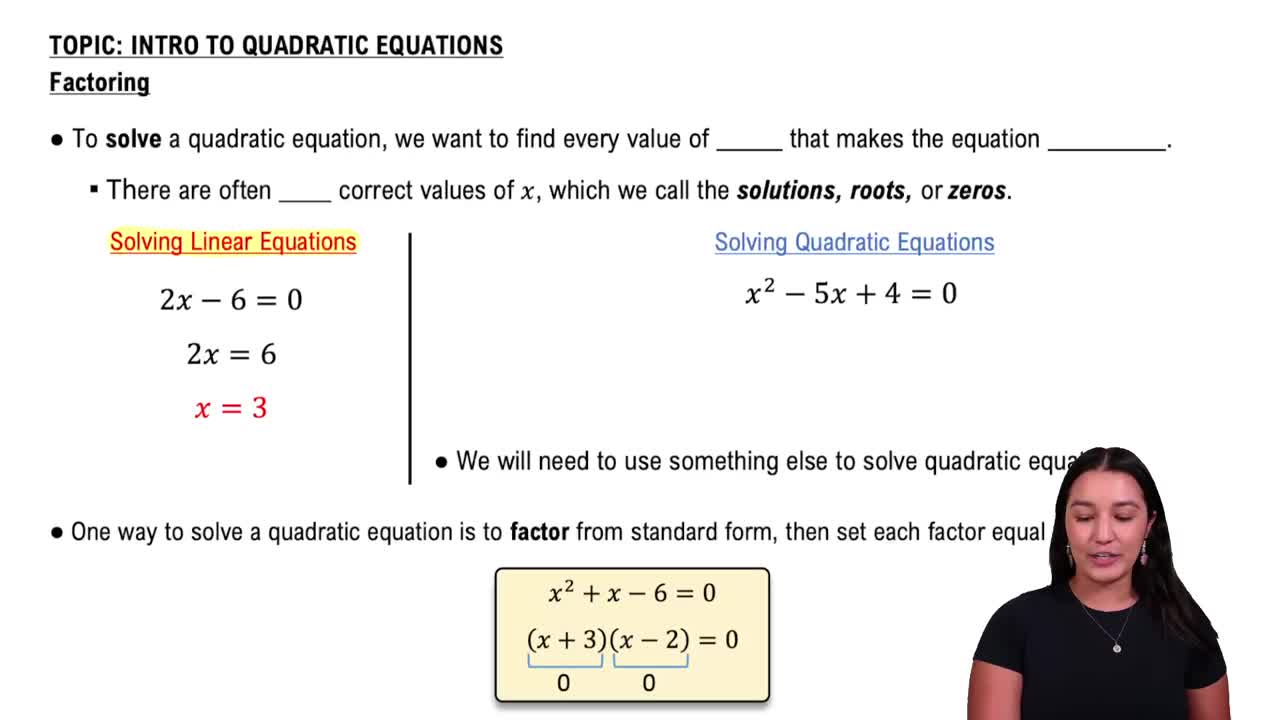Textbook Question
Solve each radical equation in Exercises 11–30. Check all proposed solutions. √(2x + 3) + √(x - 2) = 2
556
views
 Verified step by step guidance
Verified step by step guidance Verified video answer for a similar problem:
Verified video answer for a similar problem:



 6:36m
6:36mMaster Solving Quadratic Equations Using The Quadratic Formula with a bite sized video explanation from Patrick
Start learning